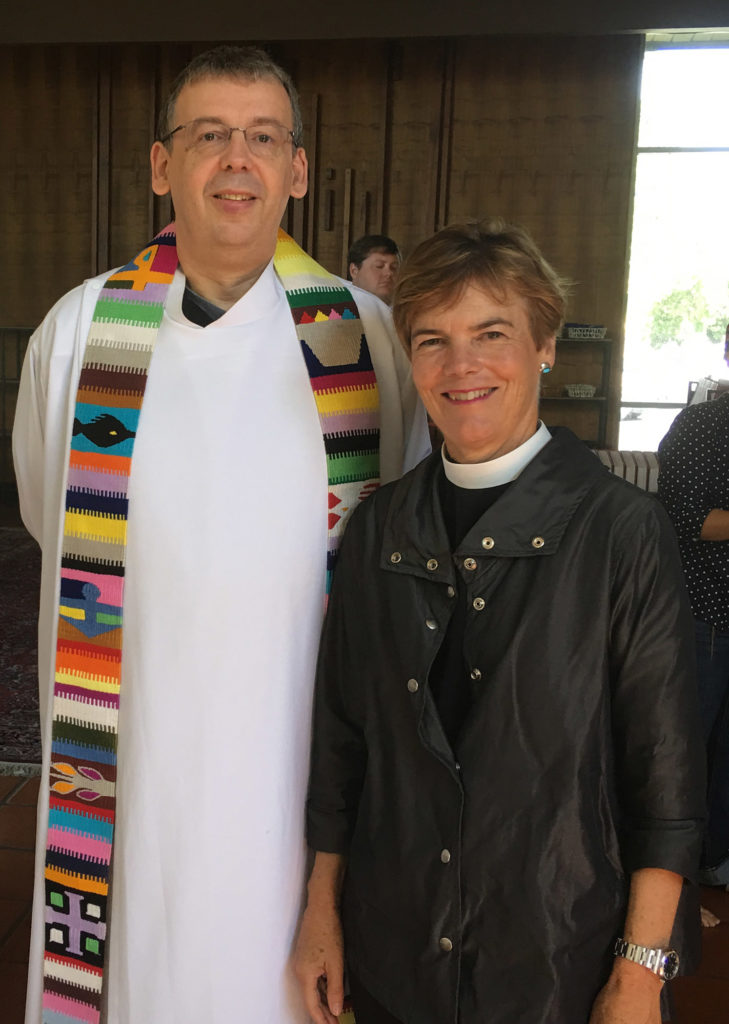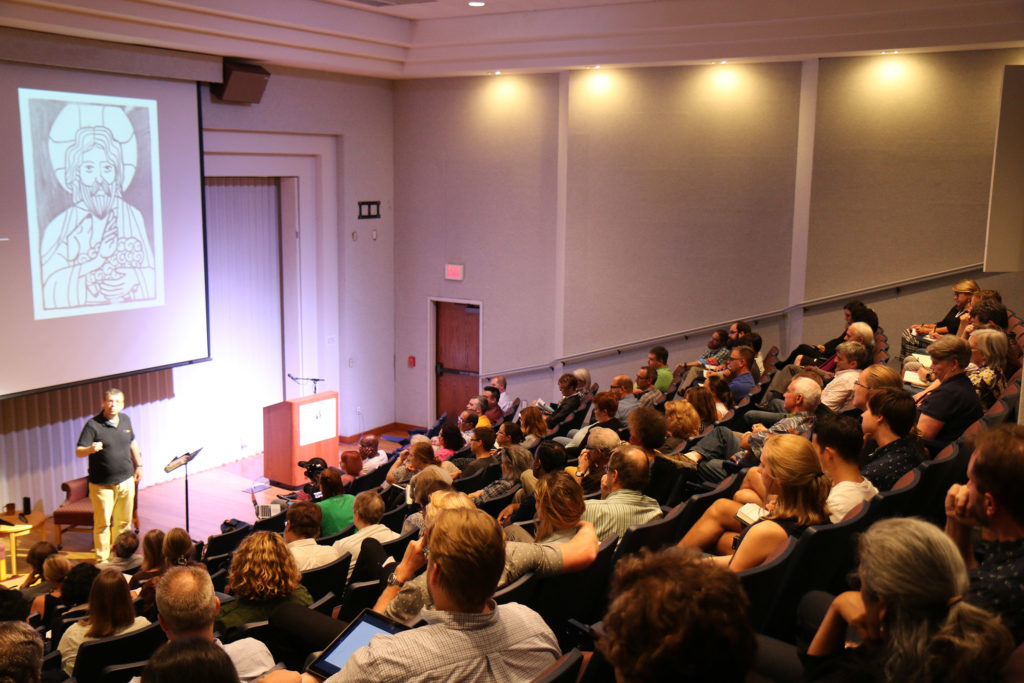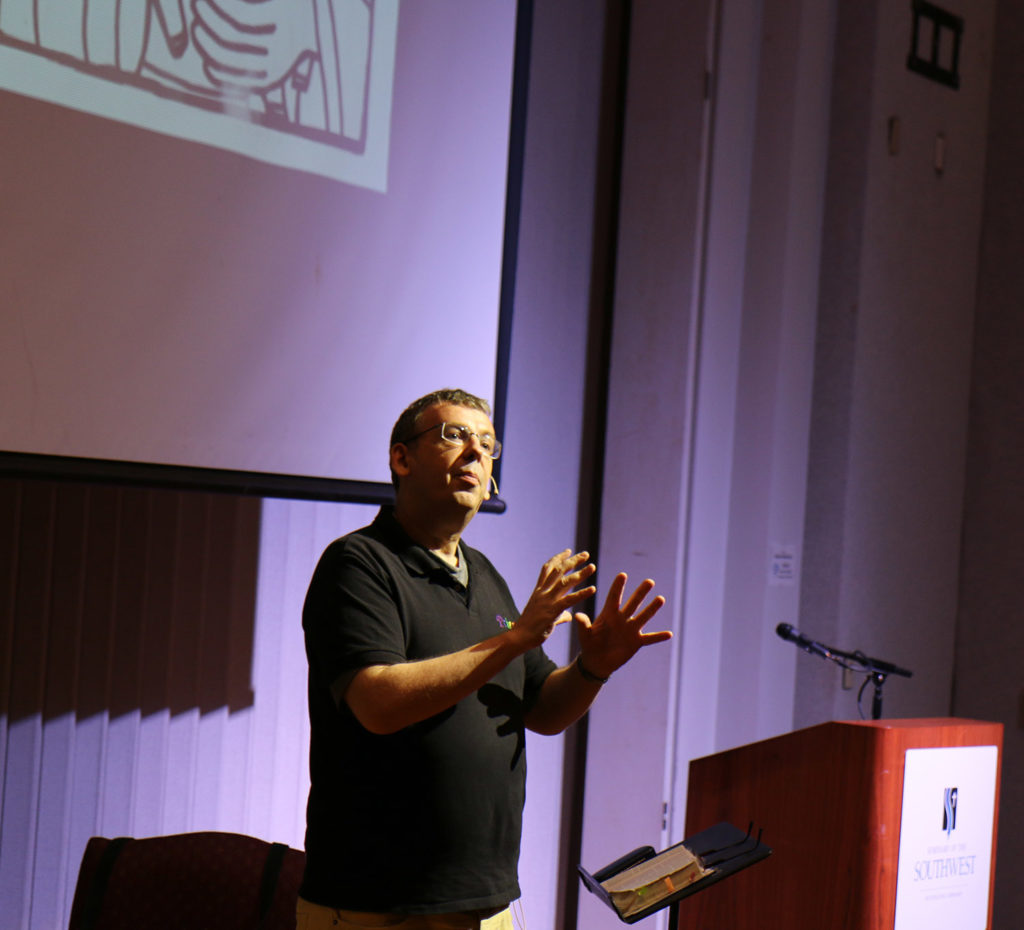
James Alison, the internationally known author, theologian, and gay Catholic priest native to England, who currently resides in Spain, recently visited the campus of Seminary of the Southwest. Alison engaged the seminary as part of a series of events throughout Austin. Through talks, interviews, and panel discussions, listeners were able to explore ways of considering frameworks for difficult scriptures, dismantling systemic racism, reconciling LGBT affirmation and theology, and engaging Christian teachings about justice and inclusion.
Books by James Alison include Knowing Jesus (1994), The Joy of Being Wrong (1998), Faith Beyond Resentment (2001), On Being Liked (2004), and Jesus the Forgiving Victim (2013). Alison’s writings place readers in touch with the words of the great French thinker René Girard on scapegoating in scripture and communities of diversity. His approach to theological reflection has broad application for faith communities seeking a framework for engaging the intersections of sexual identity, gender, racism, and religion.
After preaching at the daily Eucharist on campus, Alison delivered his evening lecture around the focus to help us consider some of our frameworks around scriptures pertaining to gender and sexuality. States Alison about his lecture, “Many of us find ourselves in a bind between a desire to love and affirm LGBT diversity and a desire to affirm traditional understandings of the Bible and Church teaching. For many, scripture seems to offer codes of behavior that have historically led to the scapegoating of members of the LGBT community. We want to reconsider some of our assumptions around these apparent “no-win binds”, and explore how Jesus’s death and resurrection put an end to scapegoating for all.”
The Very Rev. Cynthia Briggs Kittredge, Dean and President, said, “Having a theologian of Alison’s prominence speak here was significant to our students and to those in the wider Austin community. He shared both how scripture has worked to scapegoat and how it can offer life affirming visions for LGBTQ people. His lecture and conversation with Tony Baker and Gena Minnix have sparked lively discussions among us.”



